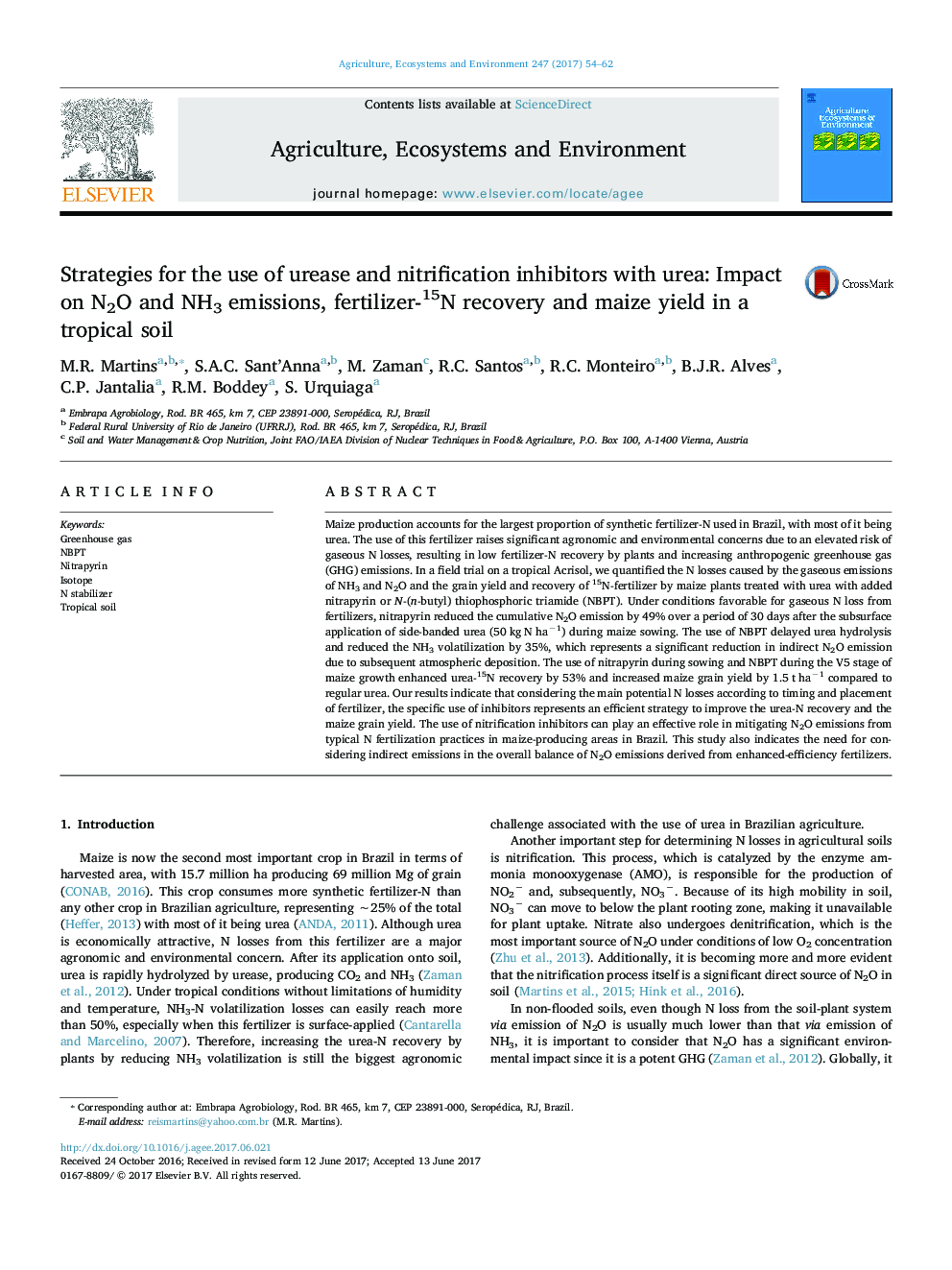| کد مقاله | کد نشریه | سال انتشار | مقاله انگلیسی | نسخه تمام متن |
|---|---|---|---|---|
| 5537977 | 1552005 | 2017 | 9 صفحه PDF | دانلود رایگان |
عنوان انگلیسی مقاله ISI
Strategies for the use of urease and nitrification inhibitors with urea: Impact on N2O and NH3 emissions, fertilizer-15N recovery and maize yield in a tropical soil
دانلود مقاله + سفارش ترجمه
دانلود مقاله ISI انگلیسی
رایگان برای ایرانیان
کلمات کلیدی
موضوعات مرتبط
علوم زیستی و بیوفناوری
علوم کشاورزی و بیولوژیک
علوم زراعت و اصلاح نباتات
پیش نمایش صفحه اول مقاله

چکیده انگلیسی
Maize production accounts for the largest proportion of synthetic fertilizer-N used in Brazil, with most of it being urea. The use of this fertilizer raises significant agronomic and environmental concerns due to an elevated risk of gaseous N losses, resulting in low fertilizer-N recovery by plants and increasing anthropogenic greenhouse gas (GHG) emissions. In a field trial on a tropical Acrisol, we quantified the N losses caused by the gaseous emissions of NH3 and N2O and the grain yield and recovery of 15N-fertilizer by maize plants treated with urea with added nitrapyrin or N-(n-butyl) thiophosphoric triamide (NBPT). Under conditions favorable for gaseous N loss from fertilizers, nitrapyrin reduced the cumulative N2O emission by 49% over a period of 30 days after the subsurface application of side-banded urea (50 kg N haâ1) during maize sowing. The use of NBPT delayed urea hydrolysis and reduced the NH3 volatilization by 35%, which represents a significant reduction in indirect N2O emission due to subsequent atmospheric deposition. The use of nitrapyrin during sowing and NBPT during the V5 stage of maize growth enhanced urea-15N recovery by 53% and increased maize grain yield by 1.5 t haâ1 compared to regular urea. Our results indicate that considering the main potential N losses according to timing and placement of fertilizer, the specific use of inhibitors represents an efficient strategy to improve the urea-N recovery and the maize grain yield. The use of nitrification inhibitors can play an effective role in mitigating N2O emissions from typical N fertilization practices in maize-producing areas in Brazil. This study also indicates the need for considering indirect emissions in the overall balance of N2O emissions derived from enhanced-efficiency fertilizers.
ناشر
Database: Elsevier - ScienceDirect (ساینس دایرکت)
Journal: Agriculture, Ecosystems & Environment - Volume 247, 1 September 2017, Pages 54-62
Journal: Agriculture, Ecosystems & Environment - Volume 247, 1 September 2017, Pages 54-62
نویسندگان
M.R. Martins, S.A.C. Sant'Anna, M. Zaman, R.C. Santos, R.C. Monteiro, B.J.R. Alves, C.P. Jantalia, R.M. Boddey, S. Urquiaga,